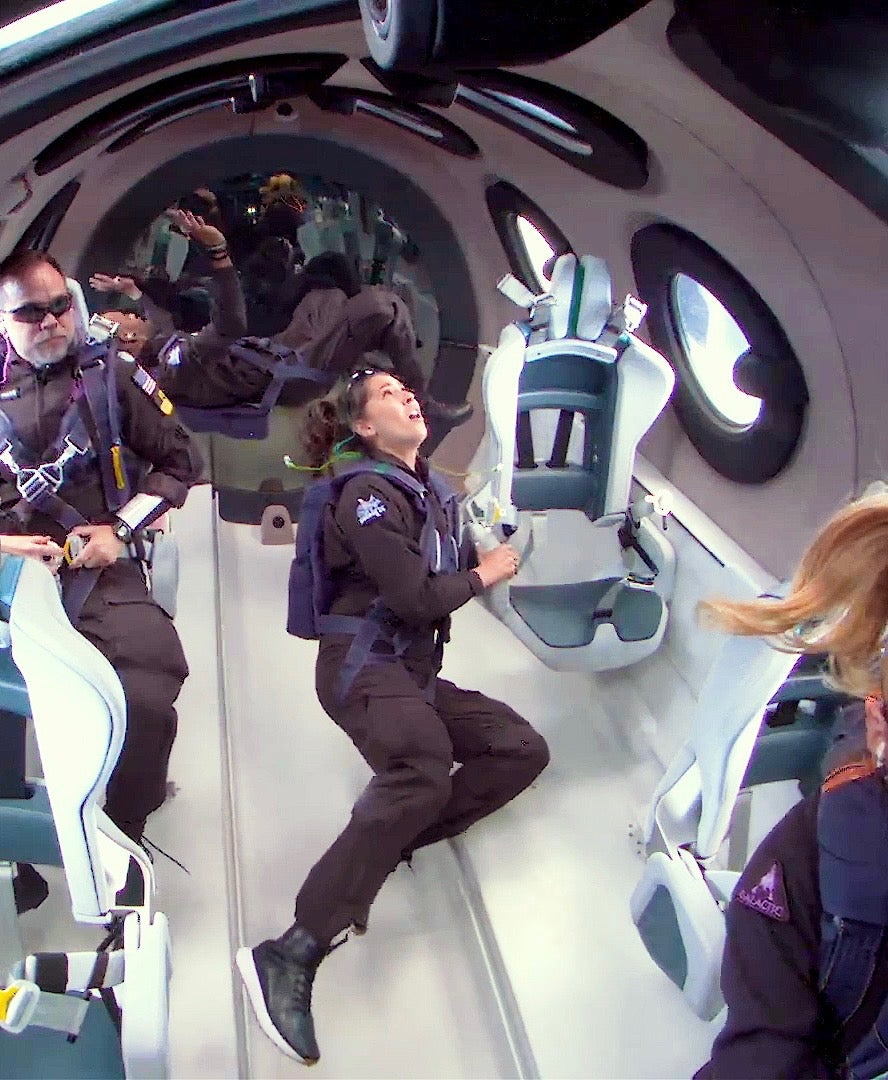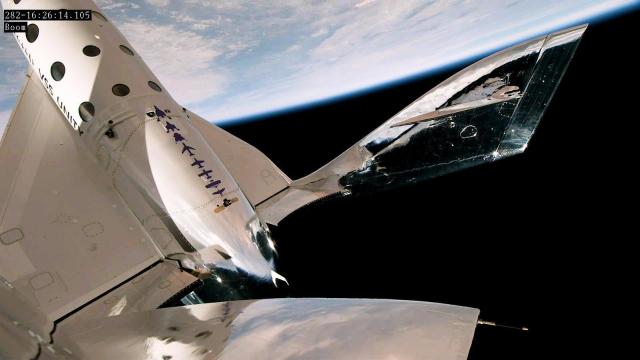Virgin Galactic’s VSS Unity spaceplane pulled off its first suborbital flight in nearly two years, potentially paving the way for the company to resume commercial trips to the edge of space.
On Thursday, Virgin Galactic launched its Unity 25 mission from Spaceport America in New Mexico at 11:15 a.m. ET. The liftoff was about an hour behind schedule, although the reason for the delay is still unknown. Nonetheless, Richard Branson’s space tourism venture declared its test flight a success after the spaceplane landed at 12:37 a.m. ET.
Woohoo! Send us your reaction GIF’s. Here’s mine! #Unity25 pic.twitter.com/q78q8SX2Jx
— Virgin Galactic (@virgingalactic) May 25, 2023
Virgin Galactic’s VMS Eve carrier aircraft took off while carrying the VSS Unity spaceplane beneath its wings. The Unity 25 mission included six crew members on board the Unity spaceplane, in addition to two pilots at the helm aboard the Eve aircraft.
The aircraft released the spaceplane at an altitude of 44,500 feet (13,500 meters) above the ground. Once it was released, the spaceplane fired up its rocket engines, lifting off to a maximum altitude of 54.2 miles (87 kilometers). That’s a little below the internationally recognised boundary of space, known as the Kármán Line, which stands at 62 miles (100 kilometers) above the surface. After reaching apogee, the spaceplane glided its way back to the runway and touched down at Spaceport America.

“Looking down at our beautiful planet from space, something that so few humans have experienced, was such a humbling, awe-inspiring, and reverent experience,” Christopher Huie, Unity 25 mission specialist, said in an emailed statement.
Following the success of its test mission, Virgin Galactic stated that it is now preparing for commercial operations with the first mission, Galactic 01, scheduled for late June. One seat on board the suborbital trip could cost around $US450,000 ($624,690) and the company claims to already have 700 customers lined up to snag their spot, according to Space.com.
“Witnessing our inspiring crew’s pure joy upon landing, I have complete confidence in the unique astronaut experience we have built for our customers,” Michael Colglazier, Virgin Galactic CEO, said in the statement. “Our teams now begin post-flight analysis as well as preparation for ‘Galactic 01.’”
Thursday’s flight was the first time Virgin Galactic flew its spaceplane to the edge of space since July 2021 when six passengers, including Branson himself, hopped on the suborbital ride. The trip was meant to usher in the company’s commercial missions, but instead led to an investigation by the Federal Aviation Administration as reports suggested that the spaceplane veered off course during its ascent.
The success of Unity 25 was crucial for the company’s commercial ambition, which could take off quite soon.
Twitter and bookmark Gizmodo’s dedicated Spaceflight page.
